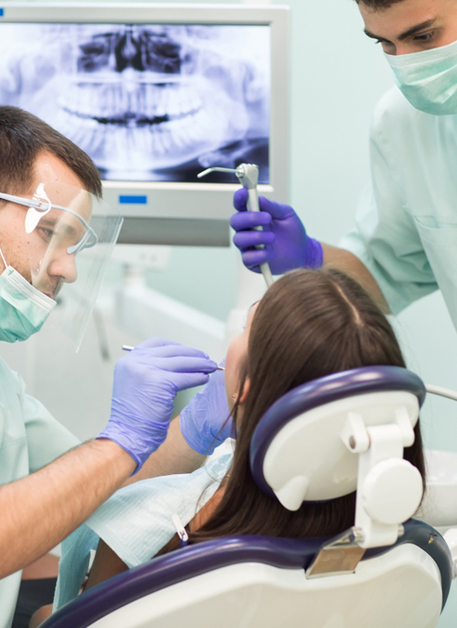- Call Now (905) 607-7721
Surgical treatments, such as gum surgery, tooth extractions, implant insertion, etc., are necessary for some dental disorders. Either your family dentist or an oral surgeon may be referred to you for the operation. It is common to have some degree of discomfort, edema, and bleeding after surgery. To guarantee adequate healing and to avoid infections or other problems, the surgical regions need to be closely watched. After oral surgery, be sure to get in touch with a doctor if you encounter any of the following symptoms:
The most common method of reducing discomfort during dental treatments is local anesthetic, or freezing; but, for more involved procedures, general anesthesia may also be used. Make sure you go by any particular instructions given before or after the operation, including those about driving home after any of these procedures.
Remember that when the anesthetic wears off, you will have discomfort that lasts for a few days. Because your mouth was open for a long time during the surgery, you can also have mouth soreness. Rest for a while so that the damaged region heals more quickly and you can feel comfortable. To avoid becoming sick, make sure you take the antibiotics and medicines as directed.
After an oral surgical operation, your dentist or oral surgeon will put gauze pads to stop the bleeding. You should bite on the pads to keep them in place for at least an hour. Even after it is removed, there can be some bleeding, but not much. Get medical help if the bleeding is severe or lasts a long time.

© Copyright Iris Dental Group All Rights Reserved. Developed by Tas Technologies